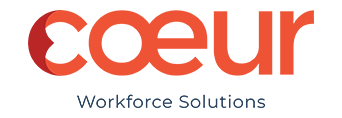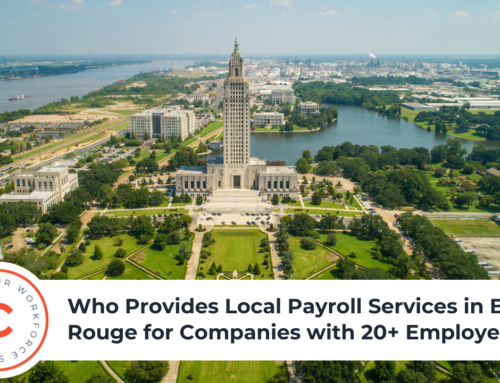As a healthcare HR professional in Louisiana, you’re no stranger to the challenges that come with balancing compliance, employee satisfaction, and the day-to-day demands of healthcare operations. With ever-changing regulations, staffing shortages, and the pressure to keep both patients and staff happy, it can feel like an overwhelming task. Yet, as the backbone of the healthcare workforce, the role you play is crucial in ensuring everything runs smoothly.
The good news? You don’t have to navigate these challenges alone. This blog will provide you with practical insights to help ease the burden, stay compliant, and create a healthier, more efficient work environment for your healthcare organization. Explore the top things Louisiana healthcare HR pros need to know to tackle today’s toughest challenges.
Understanding the Importance of Compliance in Healthcare HR
Compliance in healthcare is not just a legal obligation, it’s vital for maintaining trust with your patients, your staff, and regulatory bodies. The healthcare industry is one of the most regulated sectors, with numerous laws and standards governing everything from patient care to employee treatment. For HR professionals, keeping up with federal regulations like HIPAA (Health Insurance Portability and Accountability Act) and FMLA (Family and Medical Leave Act), as well as Louisiana-specific regulations, is a full-time job.
One of the most important aspects of compliance is ensuring confidentiality. Missteps in handling personal health information can lead to severe penalties and loss of trust, not to mention reputational damage. Additionally, state-specific labor laws in Louisiana, such as those affecting wages, overtime, and employee rights, add another layer of complexity. Staying on top of these regulations and making sure your healthcare facility is fully compliant isn’t just a good practice, it’s critical to avoid costly fines and legal issues.
Non-compliance doesn’t only risk fines. It can lead to workplace unrest, poor employee morale, and even legal action from disgruntled employees. When you focus on staying compliant, you’re not just ticking boxes. You’re fostering a culture of trust, respect, and accountability, key ingredients for a positive workplace environment.
As the healthcare sector continues to evolve, so too will the regulatory landscape. HR professionals need to be proactive, continuously updating policies and training staff on changes in regulations to stay ahead of potential issues.
Top 10 Things Healthcare HR Pros Need to Know
1. Adapting to Evolving Healthcare Laws
Healthcare laws are constantly changing, and staying ahead of these shifts is essential. Whether it’s updates to HIPAA regulations, state-specific healthcare laws in Louisiana, or federal changes like FMLA and ACA compliance, the responsibility to stay updated falls squarely on the shoulders of healthcare HR professionals. For instance, Louisiana has unique state labor laws that must be considered alongside federal mandates, and any changes can directly impact payroll, employee benefits, and workplace policies. By consistently reviewing and adjusting policies, HR professionals can ensure their organization stays compliant and avoid legal pitfalls.
2. Employee Retention Strategies for Healthcare Workers
Staffing shortages and burnout are some of the biggest challenges in healthcare HR today. In Louisiana, the demand for healthcare workers is high, and retaining your talent has become more critical than ever. A study by the American Hospital Association revealed that burnout rates among healthcare workers have surged. To address this, HR professionals must prioritize employee well-being and work-life balance. Offering mental health support, flexible scheduling, and career growth opportunities can significantly reduce turnover. Consider implementing recognition programs to reward staff for their hard work and dedication, and provide clear career progression paths that encourage long-term retention.
3. Leveraging Technology to Streamline HR Functions
Technology is transforming the way HR professionals manage healthcare operations. From payroll to benefits administration, HR software solutions can streamline processes and reduce administrative burdens. Using cloud-based HR systems ensures that all your HR functions, from tracking certifications and compliance to payroll and employee benefits, are integrated and easily accessible. With real-time data, you can make more informed decisions, improve employee satisfaction, and maintain compliance with fewer resources. Leveraging technology not only boosts efficiency but also enhances the employee experience, giving them access to benefits and HR information at their fingertips.
4. Managing Staffing Shortages
The healthcare industry is facing a severe staffing shortage, and Louisiana is no exception. HR professionals need to get creative in tackling this issue. While hiring new talent is a top priority, don’t overlook the power of internal mobility. Promoting from within, offering cross-training opportunities, and improving employee engagement can help retain existing employees while filling key positions. It’s also essential to develop strong recruitment pipelines and build relationships with local universities and healthcare programs to ensure a steady flow of qualified candidates.
5. The Importance of Employee Training and Development
In healthcare, continuous training is key to maintaining a high standard of care and compliance. HR professionals must ensure that staff are regularly updated on clinical practices, regulatory changes, and internal policies. Offering development programs, certifications, and educational workshops can boost both employee morale and patient outcomes. Furthermore, training initiatives help minimize human error, improve job performance, and ensure that all staff are aligned with the organization’s core values.
6. Navigating Labor Laws in Healthcare
Healthcare labor laws can be tricky, with various regulations impacting everything from shift scheduling to overtime pay. In Louisiana, understanding state-specific labor laws is crucial. HR professionals must ensure they are adhering to both state and federal labor laws, including the Fair Labor Standards Act (FLSA) and state-specific overtime rules. Having a comprehensive understanding of these laws is essential for protecting the business and the employees from costly mistakes.
Stay ahead of the curve and ensure compliance with Coeur Workforce Solutions.
7. Benefits Administration for Healthcare Workers
Healthcare workers often look for more than just salary, they expect comprehensive benefits packages. Benefits, such as health insurance, retirement plans, paid time off, and wellness programs, are key to attracting and retaining top talent. HR professionals must be able to streamline benefits administration to avoid errors and ensure that all employees have access to the benefits they need. Offering flexible benefits packages can also help meet the diverse needs of healthcare workers, including options for different life stages and family situations.
8. Diversity, Equity, and Inclusion (DEI) in Healthcare
As the healthcare industry strives to reflect the diverse communities it serves, HR professionals must take a proactive approach to Diversity, Equity, and Inclusion (DEI) initiatives. Creating a culture of inclusivity not only supports employees but also enhances patient care by bringing diverse perspectives and ideas. HR professionals can implement DEI policies, provide training on cultural competency, and ensure that recruitment efforts are inclusive of all backgrounds. This contributes to a more positive work environment and supports improved health outcomes for diverse patient populations.
9. Managing Healthcare Workers’ Mental Health
Mental health is a growing concern in healthcare, where employees are frequently exposed to high-stress environments. HR professionals must prioritize mental health initiatives to support their teams. This can include offering mental health resources, creating employee assistance programs (EAPs), and promoting a work-life balance that helps staff manage stress. By supporting healthcare workers’ mental health, HR can reduce burnout, absenteeism, and improve overall employee engagement and retention.
10. Creating a Culture of Trust and Respect
A positive workplace culture is essential in healthcare settings, where teamwork and trust directly affect patient care. HR professionals must foster an environment where open communication, respect, and collaboration are the norm. By implementing feedback mechanisms, encouraging transparency, and offering professional growth opportunities, HR can help cultivate a supportive culture that attracts and retains talented professionals. A healthy work culture also leads to better patient outcomes and higher employee satisfaction, both of which are integral to the success of any healthcare organization.
Conclusion
Managing HR in healthcare can feel like a never-ending challenge, particularly in Louisiana, where healthcare professionals are confronted with a unique mix of regulatory complexity and staffing shortages. However, by staying informed on the evolving landscape of healthcare laws, implementing strategic retention programs, embracing technology, and addressing staffing shortages proactively, healthcare HR professionals can significantly improve both the workplace environment and the quality of patient care.
Coeur Workforce Solutions understands the intricacies of managing HR in the healthcare sector. The team provides tailored solutions that streamline HR processes, reduce compliance risks, and enhance employee satisfaction. Whether a healthcare organization is looking to improve its recruitment strategy, optimize its payroll system, or ensure compliance with state and federal laws, Coeur is equipped to assist. Schedule a consultation to learn how Coeur Workforce Solutions can support your HR needs and help create a healthier, more efficient workplace.





